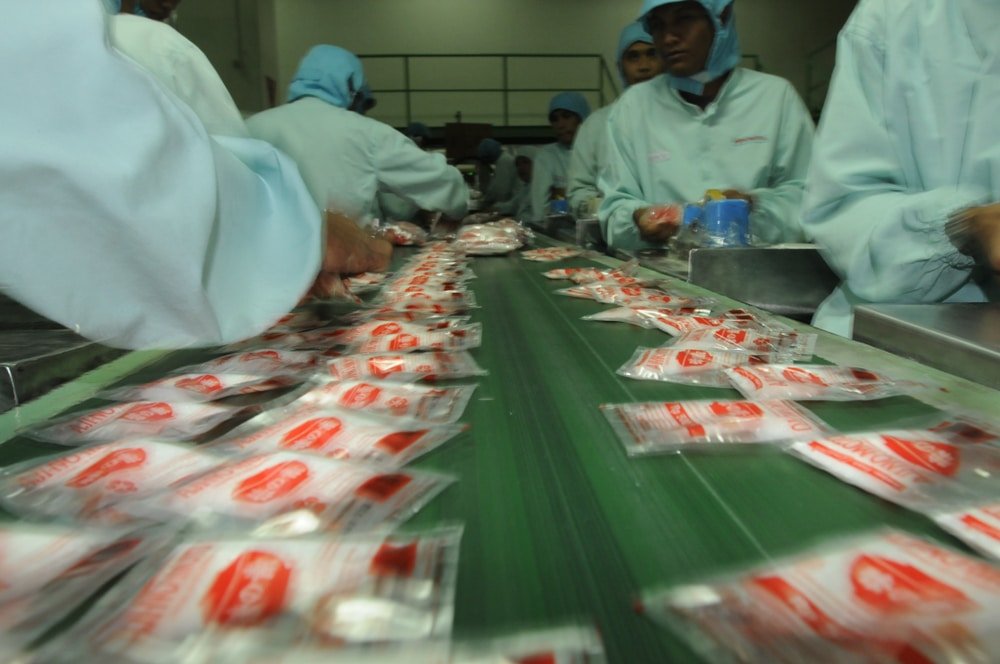Ajinomoto Philippines Corporation (APC) marked a major milestone in its sustainability journey by fully shifting its Cebu facility to clean energy.
With the launch of its 100% Renewable Energy (RE) Badge, APC reinforces its leadership in eco-friendly manufacturing and fulfills its promise to operate all its Philippine sites using green power sources.
This achievement aligns with APC’s broader mission to reduce its environmental footprint by half by 2030.
APC President Koichi Ozaki described the milestone as “a corporate achievement—it’s a benchmark for sustainability across industries.”
The company sources its RE through a partnership with ACEN Renewable Energy Solutions. According to Ernesto Carlos, Chief Sustainability Officer at APC, access to clean power remains limited due to scarce resources and infrastructure.
“But with our effort to partner with ACEN, of course… we were able to keep on pushing for our factory in Cebu to be given a slice of the pie,” he said.
(Also read: Mandaue to Launch Cebu’s First EV Charging Station)
Eco-friendly facilities
In 2024, Ajinomoto Philippines Flavor Food Inc. (APF Bulacan) switched to 100% RE, cutting around 6,500 metric tons of CO2 emissions yearly. The facility also installed a 1 megawatt-peak (MWp) solar rooftop through a partnership with MSpectrum, a Meralco subsidiary.
With the Cebu factory adopting the same approach, it is expected to reduce CO2 emissions by around 2,500 to 3,000 metric tons each year.
Both factories now operate entirely on RE for their electricity needs, a significant achievement that Ozaki highlighted. He expressed pride in being the first Ajinomoto Group affiliate to reach this breakthrough.
“This milestone reflects APC’s purpose of ‘Eat Well, Live Well’ not just today, but for future generations,” he said.
(Also read: Visayan Electric Brings Light to 26 Homes in Naga, Cebu)
Other green efforts
APC has intensified its sustainability initiatives, starting with the use of paper packaging for products from APF. Carlos highlighted efforts to reduce environmental plastic, including recycling initiatives. Additionally, the company announced replacing extra plastic bags with paper bands for sachet products, a crucial step in tackling plastic waste and pollution.
Electric vehicles (EVs) are also being adopted for logistics, transporting completed products from their hub.
APC aims to become a zero-waste company by transforming waste into usable materials to prevent environmental impact. Carlos explained that waste like paper and plastic films is sent to cement factories for use as raw materials. He added, “And our food — we call it animal waste — our powder, they are converted into animal feeds.”
A key challenge for APC is helping its suppliers adopt RE and integrate sustainable practices throughout the supply chain. Carlos noted, “That’s our next and future plans. To involve also our upstream. These are our suppliers to embark on a similar journey like ours, sustainability.”
Moving forward, APC plans to focus on cutting Scope 3 emissions, which come from later-stage operations such as the delivery and handling of products.
But for now, the company is focused on its sustainability milestones, including its collaboration with ACEN. Ozaki shared that they aim to deepen this partnership, emphasizing that sustainability is more than a goal — it’s a reality they are actively shaping.
“I am confident that we will continue to make meaningful strides in reducing carbon emissions and fostering a healthier planet for future generations,” he said.
Sources:
https://tribune.net.ph/2025/04/07/ajinomoto-boasts-100-renewable-energy
https://negosyante.org/ajinomoto-cebu-now-fully-powered-by-100-renewable-energy


